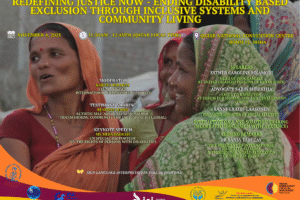
Nov 16, 2015 | News
The International Commission of Jurists (ICJ) deplores the devastating criminal attacks carried out in Paris on 13 November, leading to the loss of at least 129 lives and many serious injuries. The ICJ extends its condolences to the victims and their families.
The attacks were calculated to cause the greatest possible arbitrary destruction of lives and of human rights.
Those responsible for these heinous crimes must now be investigated and brought to justice, in a manner that ensures strict compliance with human rights and the rule of law.
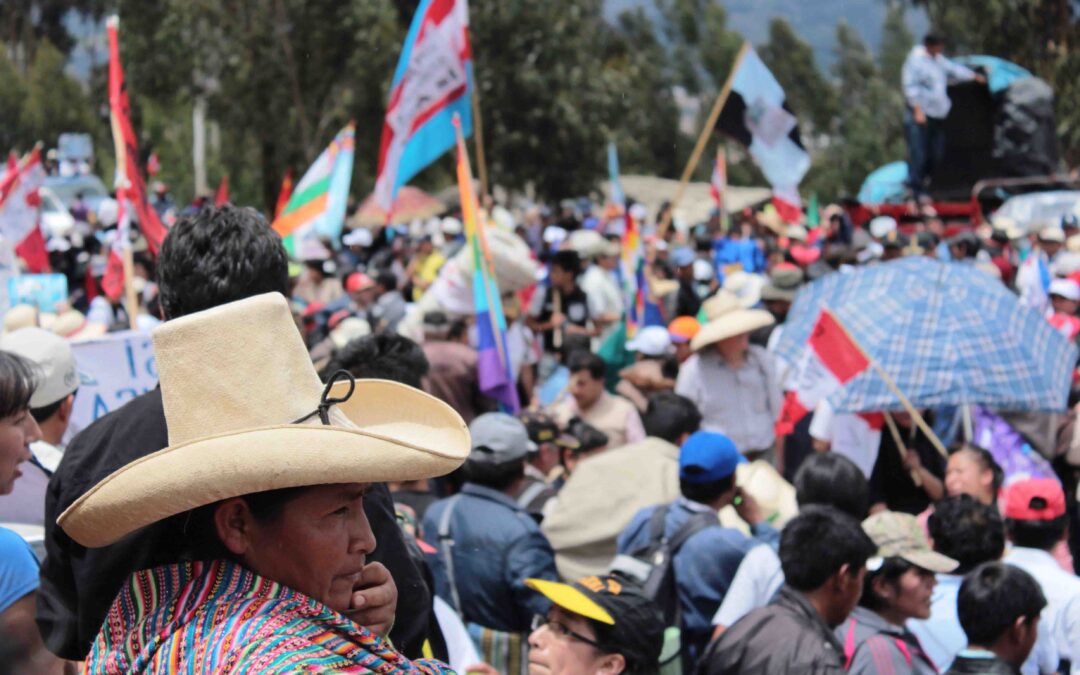
Nov 13, 2015 | Comunicados de prensa, Noticias
Las autoridades peruanas deben revisar algunas de sus leyes y políticas para proteger mejor los derechos económicos, sociales y culturales en el país, pidió hoy en Lima la CIJ.
La petición se hace al final de una misión de una semana realizada por la CIJ para recoger información y evaluar el impacto de las industrias extractivas en el disfrute de los derechos económicos, sociales y culturales de la población, en especial, los campesinos y las comunidades indígenas.
En particular, la CIJ está preocupada por el impacto negativo en los derechos humanos del Decreto 30230, que busca facilitar la inversión privada.
Mientras la inversión puede contribuir de manera importante al disfrute de los derechos humanos, la CIJ considera que esta norma en particular conduce en la práctica a la falta de respeto de los derechos humanos en cuanto reduce los estándares de protección ambiental y social.
La CIJ saluda la adopción de legislación que protege los derechos humanos, incluido el derecho a la consulta previa de los pueblos indígenas y la regulación del uso de la fuerza por parte de la Policía.
Sin embargo, la CIJ nota que con frecuencia esas leyes en la práctica no son implementadas efectivamente.
Durante su misión, la CIJ pudo verificar la información sobre el incremento del número de conflictos violentos y de protestas sociales relacionadas con los proyectos mineros.
“Un gran número de los conflictos sociales actuales tienen lugar en áreas donde se llevan a cabo actividades de la industria extractiva. La tendencia a disminuir la protección de los derechos económicos, sociales y culturales y del ambiente, para facilitar la inversión, genera un alto riesgo de que la violencia de los conflictos se incremente”, dijo Sandra Ratjen, Asesora Jurídica Sénior del programa de la CIJ para los derechos económicos, sociales y culturales.
“Hay una brecha entre las obligaciones internacionales de Perú de respetar y proteger los derechos humanos y las amenazas sistemáticas que enfrentan las comunidades que se encuentran en las áreas mineras para disfrutar realmente derechos como el derecho al agua, a la salud y a la vivienda o a la consulta previa, libre e informada de las comunidades indígenas”, agregó.
La CIJ está particularmente preocupada por las afirmaciones de uso contrario al derecho internacional de la fuerza letal para controlar las manifestaciones y las protestas en zonas mineras, como ocurrió recientemente en Las Bambas.
La CIJ recibió información de diversas fuentes en el sentido que en varias ocasiones las fuerzas de seguridad han usado la fuerza en contra de los principios de necesidad y proporcionalidad.
La CIJ exhorta a las autoridades peruanas a tomar las siguientes medidas para fortalecer la protección de los derechos económicos, sociales y culturales en el país:
- Mantener y fortalecer las leyes y las políticas que protegen los derechos humanos, en particular los económicos, sociales, culturales y del ambiente;
- En consecuencia, revisar la legislación que impida que el Estado cumpla con sus obligaciones internacionales de derechos humanos, incluidas las relativas al disfrute de derechos como el derecho al trabajo decente, el derecho a la salud y al agua potable o el derecho a la protección frente a desalojos forzados;
- Asegurar plenamente el ejercicio del derecho de reunión y de la libertad de expresión de las personas y los grupos, incluidos los defensores de derechos humanos.
Información adicional
La misión de la CIJ incluyó a María Clara Galvis, abogada colombiana especialista en derecho internacional de los derechos humanos y profesora de la Universidad Externado de Colombia; Rafael Uzcátegui, sociólogo venezolano y Coordinador General del Programa venezolano de educación y acción en derechos humanos (PROVEA); Sandra Ratjen, Asesora Jurídica Sénior del Programa de Derechos Economicos, Sociales y Culturales de la CIJ y Olivier van Bogaert, Director de prensa y comunicaciones de la CIJ.
La delegación se reunió con autoridades de varios ministerios, representantes de empresas extractivas, agencias de cooperación, organizaciones de derechos humanos, sindicatos y organizaciones sociales. En diciembre, la CIJ publicará el informe final con sus hallazgos y recomendaciones sobre la situación de los derechos económicos, sociales y culturales en el contexto de las industrias extractivas y el aumento de los conflictos sociales en el Perú.
Contacto:
Sandra Ratjen, Senior Legal Adviser for ICJ’s Programme on Economic, Social and Cultural Rights, t: +55 96 48 13 628; e: sandra.ratjen@icj.org
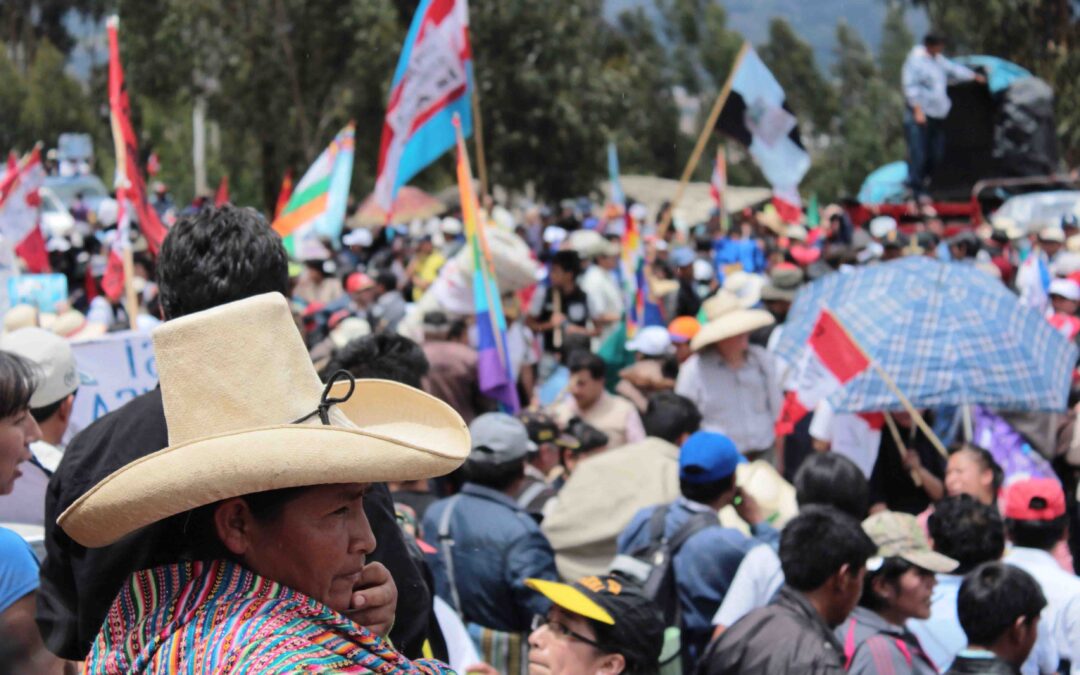
Nov 13, 2015 | News
The Peruvian authorities must revise a number of its laws and policies to better protect economic, social and cultural rights (ESCR) in the country, the ICJ says.
The call comes at the end of a one-week mission by the ICJ to gather information on and assess the impact of extractive industries on the economic, social and cultural rights of local populations, especially peasant and indigenous communities.
In particular, the ICJ is concerned at the adverse human rights impact of “Ley 30230” that aims at facilitating investment.
While investment can make an important contribution to the realization of human rights, the ICJ considers that this particular law effectively leads to a degradation of human rights by lowering social and environmental protection standards.
The ICJ does welcome the enactment of protective legislation by Peru, including that protecting and implementing the right to free, prior and informed consent of indigenous peoples or regulating the use of force by the police.
However, the ICJ notes these laws are often not effectively implemented in practice.
During the mission the ICJ verified information on the increasing number of violent conflict and social protests relating to mining projects.
“A large proportion of current social conflicts in the country is taking place in areas of extractive industrial activities. With a trend to lower the protection of economic and social rights and the environment in order to facilitate investment, there is a high risk that violent conflict will increase even more,” said Sandra Ratjen, Senior Legal Adviser for ICJ’s Programme on Economic, Social and Cultural Rights.
“There is a gap between Peru’s international law obligations to respect and protect human rights and the systematic threats to the enjoyment of rights, such as the right to water, to health or to housing, or to free and prior, informed consent that communities in mining areas are facing,” she added.
The ICJ is particularly concerned at the alleged unlawful use of lethal force to suppress demonstrations and social protests in mining areas such as in the recent case of Las Bambas.
The ICJ received information from various sources that in some instances the security forces had used such force in contravention of the principles of necessity and proportionality.
The ICJ urges the Peruvian authorities to take the following measures to strengthen the protection of Economic, Social and Cultural Rights in the country:
- maintain and strengthen the national laws and policies protecting human rights, particularly economic, social and cultural rights and the environment;
- accordingly revise legislation that obstructs the State to comply with its international human rights obligations, including those related to the realization of rights such as the right to decent work the rights to health and safe water or the right to be protected against forced evictions;
- fully ensure the free exercise of the right to peaceful assembly and of freedom of expression of individuals and peoples, including human rights defenders.
Additional information:
The ICJ mission included: María Clara Galvis, a Colombian lawyer specialized in international human rights law and Professor at Universidad Externado de Colombia ; Rafael Uzcátegui, a Venezuelan sociologist and Coordinator General of the Venezuelan Programme of Education and Action on Human Rights (PROVEA); Sandra Ratjen, Senior Legal Adviser for ICJ’s Programme on Economic, Social and Cultural Rights; and Olivier van Bogaert, ICJ Director of Media and Communications.
The delegation met with authorities from various Peruvian Ministries, representatives from extractive companies, cooperation agencies, human rights non governmental organizations, trade unions and community-based organizations.
In December, the ICJ will release a final report containing its findings and recommendations on the situation of economic, cultural and social rights in the context of extractive activities and the rise of social conflicts in Peru.
Contact:
Sandra Ratjen, Senior Legal Adviser for ICJ’s Programme on Economic, Social and Cultural Rights, t: +55 96 48 13 628; e: sandra.ratjen(a)icj.org
Peru-ESCR mission-News-Press release-2015-SPA (full press release in PDF, Spanish)
Photo credit: Jonas Hulsens
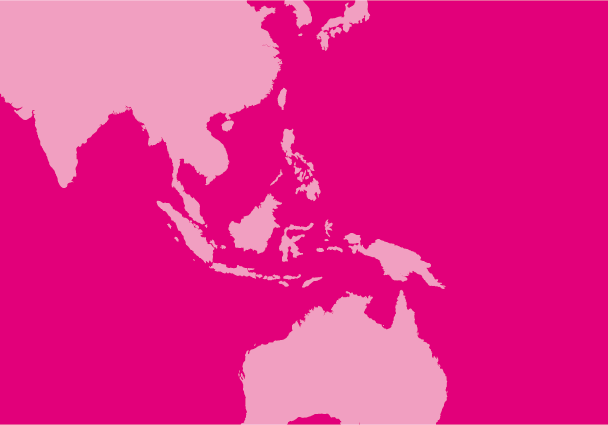
Nov 11, 2015 | News
While welcoming the Maldives government’s revocation of the emergency yesterday, the arbitrary manner in which the emergency was first imposed and then suddenly revoked within the span of a week reflects a deeper erosion of the rule of law in the country, the ICJ said today.
On 10 November, a week after declaring a 30-day state of emergency, the Maldives lifted the emergency reportedly because authorities had arrested several people in connection with an alleged plot to “use dangerous weapons and explosives”, thereby neutralizing the purported national security threat cited as the grounds for the emergency.
Maldivian authorities have not provided any information as to who or how many individuals were arrested or the nature of the charges.
“The imposition of a state of emergency is not a political tool to be used willy-nilly as a matter of convenience to suspend human rights protections and suppress political opposition,” said Nikhil Narayan, ICJ’s South Asia Senior Legal Adviser.
“A state of emergency that suspends constitutional rights is not to be declared lightly,” he added. “It has serious implications for human rights and the rule of law in the country, and must only be invoked in the most extreme situations and in accordance with international law.”
International law expressly permits derogations of certain human rights only in times of public emergency which threatens ‘the life of the nation’.
“Declaring a 30-day emergency and then suddenly lifting it a week later only reinforces the serious concerns previously raised as to the legitimacy of the emergency in the first place, and speaks to the larger rule of law crisis in the country,” Narayan said.
The emergency decree issued by the Maldives government last week suspended several constitutional rights, including the right to freedom of peaceful assembly, and reduced the constitutionally mandated period for the vice president to respond to impeachment charges from 14 to 7 days.
The opposition Maldivian Democratic Party (MDP) had planned a public anti-government demonstration for 6 November, two days prior to which the emergency was declared.
Meanwhile, the vice president was removed from his post the day after the emergency decree, 5 November, in a swift and seemingly arbitrary impeachment hearing.
“The circumstances surrounding events in the Maldives this past week clearly suggest that the government was using the emergency as a ploy to prevent the planned opposition rally and to eliminate the vice president as a political threat,” said Narayan.
The emergency also granted sweeping powers of search, arrest and detention without warrant to the police, who reportedly raided several buildings and arrested an unknown number of individuals under its emergency powers over the past week.
“The Maldives government cannot flout international law by invoking emergency powers as a means to deny the due process rights of the vice president and others arrested or detained for alleged crimes,” added Narayan. “The government must ensure that the individuals arrested during the emergency are afforded their full fair trial and due process rights in accordance with international law.”
Additional Information:
The ICJ previously raised concerns that the alleged grounds for the emergency did not appear to establish a threat to the life of the as required by the high threshold set by international law, and could not in any event justify the complete suspension of constitutional rights.
In August 2015, following a joint fact-finding mission to the Maldives, the ICJ and South Asians for Human Rights (SAHR) documented the breakdown of the rule of law and human rights in the Maldives in a 35-page report, Justice Adrift: Rule of Law and the Political Crisis in the Maldives.
Contact:
Nikhil Narayan, ICJ Senior Legal Adviser for South Asia, t: +977 9813187821 ; e: nikhil.narayan(a)icj.org
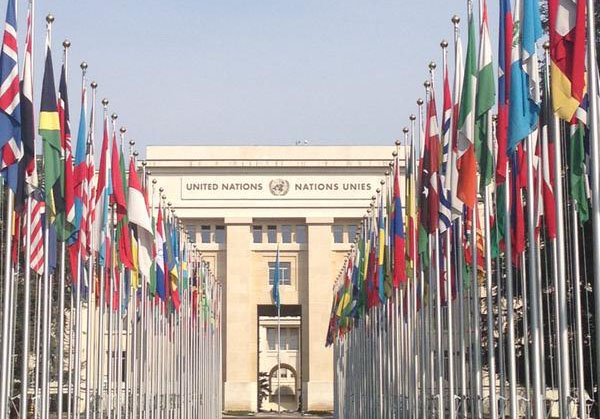
Nov 10, 2015 | Plaidoyer
Appel à la tenue d’une session spéciale du Conseil des droits de l’Homme afin de contribuer aux efforts onusiens et régionaux visant à prévenir la commission d’atrocités au Burundi
Lors de sa dernière session ordinaire, le Conseil des droits de l’Homme a exprimé de vives inquiétudes quant à la situation des droits humains au Burundi et a démontré sa capacité à répondre à une situation d’urgence en matière de droits humains en adoptant la résolution 30/271, qui lui permettra de discuter de la situation au Burundi à l’occasion de dialogues interactifs devant se tenir lors de ses trois sessions ordinaires en 2016.
Malheureusement, le Gouvernement du Burundi a échoué à répondre à l’appel à la retenue envoyé par le Conseil (notamment son appel à « s’abstenir de toute action susceptible d’exacerber les tensions au Burundi »), et la détérioration rapide de la situation des droits humains dans le pays ne permet pas au Conseil d’attendre sa trente-et-unième
session (mars 2016) pour prendre des mesures additionnelles afin de prévenir la commission d’atrocités au Burundi.
Suite dans le PDF ci-dessous:
Burundi-UN-OpenLetter-2015-FR (Lettre complète en PDF)







